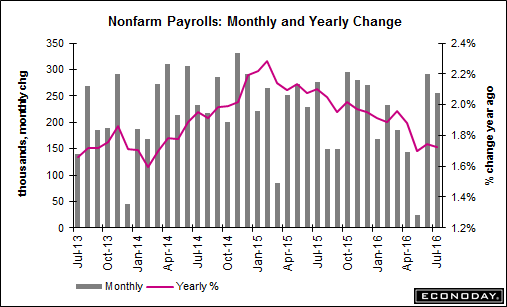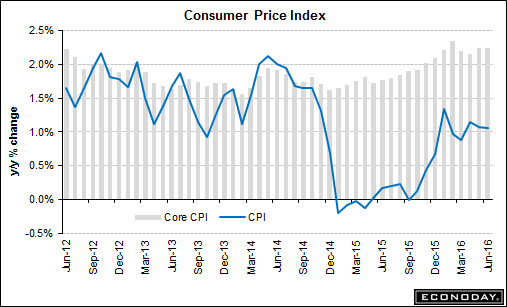How strong jobs growth affects the Fed's plan to raise rates
You might think the most important decision of the year for Americans is whom to install in the White House. But according to Wall Street, little matters more for the direction of stocks than whether the Federal Reserve is going to raise interest rates again this year.
At the start of the year, the Fed has penciled in four quarter-point rate hikes for 2016. This, along with a nasty decline in energy prices, resulted in one of the worst-ever starts to the year, with a harrowing market selloff in January and February.
Since then, the central bank has slashed this rate hike guidance in half, and the market had been expecting this to be cut even further. All the way to zero, in fact. But Friday's surprisingly strong payroll gains -- along with evidence of firming inflation -- suggest this assumption is no longer safe.
As a result, watch for investors to be a little less ebullient through August and September as everyone awaits clarity on the Fed's intentions at their September and December policy meetings.
To recap: The economy created 255,000 jobs in July, much stronger than the roughly 180,000 that had been forecast. The unemployment rate held at 4.9 percent as well.
This is good news in that it bolsters the U.S. consumer at a time when shoppers are all that stands between the economy and a new recession based on the outright contraction in non-consumer activity (which I discussed in a recent post). Separately, the Federal Reserve Bank of Atlanta boosted their third quarter estimate of GDP growth to 3.8 percent, a marked acceleration from the tepid pace seen in the first half of the year.
What's good for the economy and consumers could be bad news for the liquidity junkies in the market because it increases the odds the Fed will stick to its two-quarter-point rate hike forecast from June. Solid job growth, along with evidence inflation is firming (mainly due to housing costs), makes the case for delaying further interest rate normalization increasingly difficult. Especially after the much-maligned "Brexit" vote from June turned into a very short-lived tempest.
Second-quarter GDP disappointed to the downside, expanding at just a 1.2 percent seasonally adjusted annualized rate and 0.8 percent in the first quarter. And we're still in the midst of an ongoing corporate earnings recession, now expected to last into the third quarter (which would be the sixth consecutive quarter of falling profitability).
So while this increases the odds of a Fed rate hike in September, it's also alleviated concerns about the health of the American consumer. And, initially at least, this was the rationale given for Friday's stock rally.
For now, the market is taking the specter of higher interest rates in stride. According to the futures market, odds of a September rate hike have doubled, to 18 percent, while odds of at least a single rate hike by December have increased to nearly 40 percent.
Traders believe there is only a 6.7 percent chance the Fed hikes rates twice this year. Translation: Despite core inflation above the Fed's 2 percent target and rising, and job growth solid, it's hard to believe the Fed will turn hawkish now after years of coming up with new excuses to delay rate hikes.
From Brexit to worries about China and even concern about the performance of the U.S. stock market have all been used to justify the Fed's persistent dovishness. But a few more months like this will make further delays a direct risk to the credibility of the central bank and could result in an undesirable rise in long-term interest rates, as bond traders price in runaway inflation pressure.
Before the end of the year, one of two things must happen: Either Fed Chair Janet Yellen disappoints stock market bulls by hiking rates faster and more aggressively than expected, or she coddles equities at the risk of upsetting the Treasury bond market by fanning the flames of inflation.


